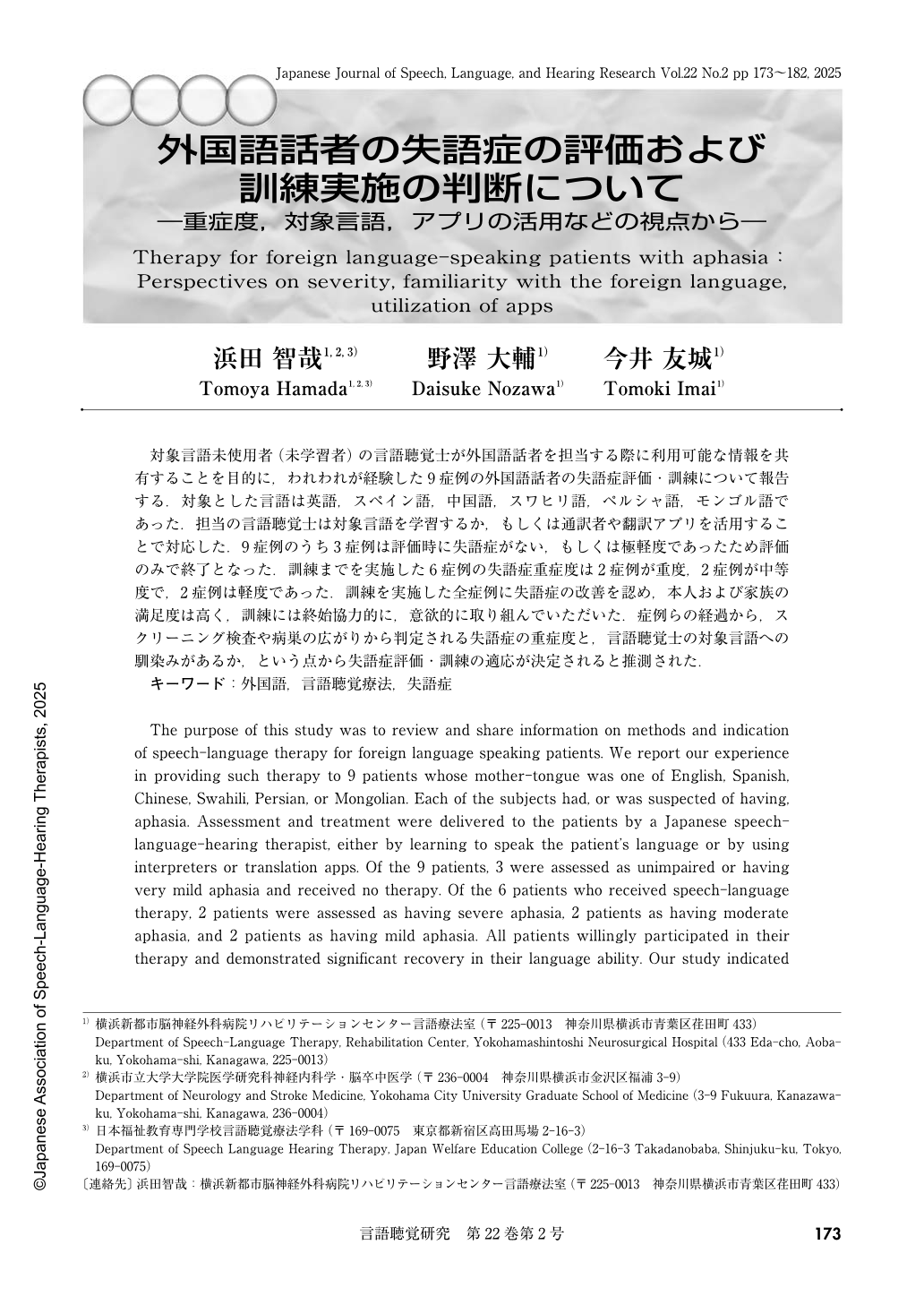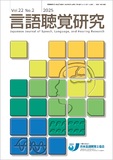Japanese
English
- 有料閲覧
- Abstract 文献概要
- 1ページ目 Look Inside
- 参考文献 Reference
対象言語未使用者(未学習者)の言語聴覚士が外国語話者を担当する際に利用可能な情報を共有することを目的に,われわれが経験した9症例の外国語話者の失語症評価・訓練について報告する.対象とした言語は英語,スペイン語,中国語,スワヒリ語,ペルシャ語,モンゴル語であった.担当の言語聴覚士は対象言語を学習するか,もしくは通訳者や翻訳アプリを活用することで対応した.9症例のうち3症例は評価時に失語症がない,もしくは極軽度であったため評価のみで終了となった.訓練までを実施した6症例の失語症重症度は2症例が重度,2症例が中等度で,2症例は軽度であった.訓練を実施した全症例に失語症の改善を認め,本人および家族の満足度は高く,訓練には終始協力的に,意欲的に取り組んでいただいた.症例らの経過から,スクリーニング検査や病巣の広がりから判定される失語症の重症度と,言語聴覚士の対象言語への馴染みがあるか,という点から失語症評価・訓練の適応が決定されると推測された.
The purpose of this study was to review and share information on methods and indication of speech-language therapy for foreign language speaking patients. We report our experience in providing such therapy to 9 patients whose mother-tongue was one of English, Spanish, Chinese, Swahili, Persian, or Mongolian. Each of the subjects had, or was suspected of having, aphasia. Assessment and treatment were delivered to the patients by a Japanese speech-language-hearing therapist, either by learning to speak the patient's language or by using interpreters or translation apps. Of the 9 patients, 3 were assessed as unimpaired or having very mild aphasia and received no therapy. Of the 6 patients who received speech-language therapy, 2 patients were assessed as having severe aphasia, 2 patients as having moderate aphasia, and 2 patients as having mild aphasia. All patients willingly participated in their therapy and demonstrated significant recovery in their language ability. Our study indicated that the severity of the aphasia and the therapist's familiarity with the patient's language were the main determinants in conducting speech-language therapy in a foreign language.

Copyright © 2025, Japanese Association of Speech-Language-Hearing Therapists. All rights reserved.


